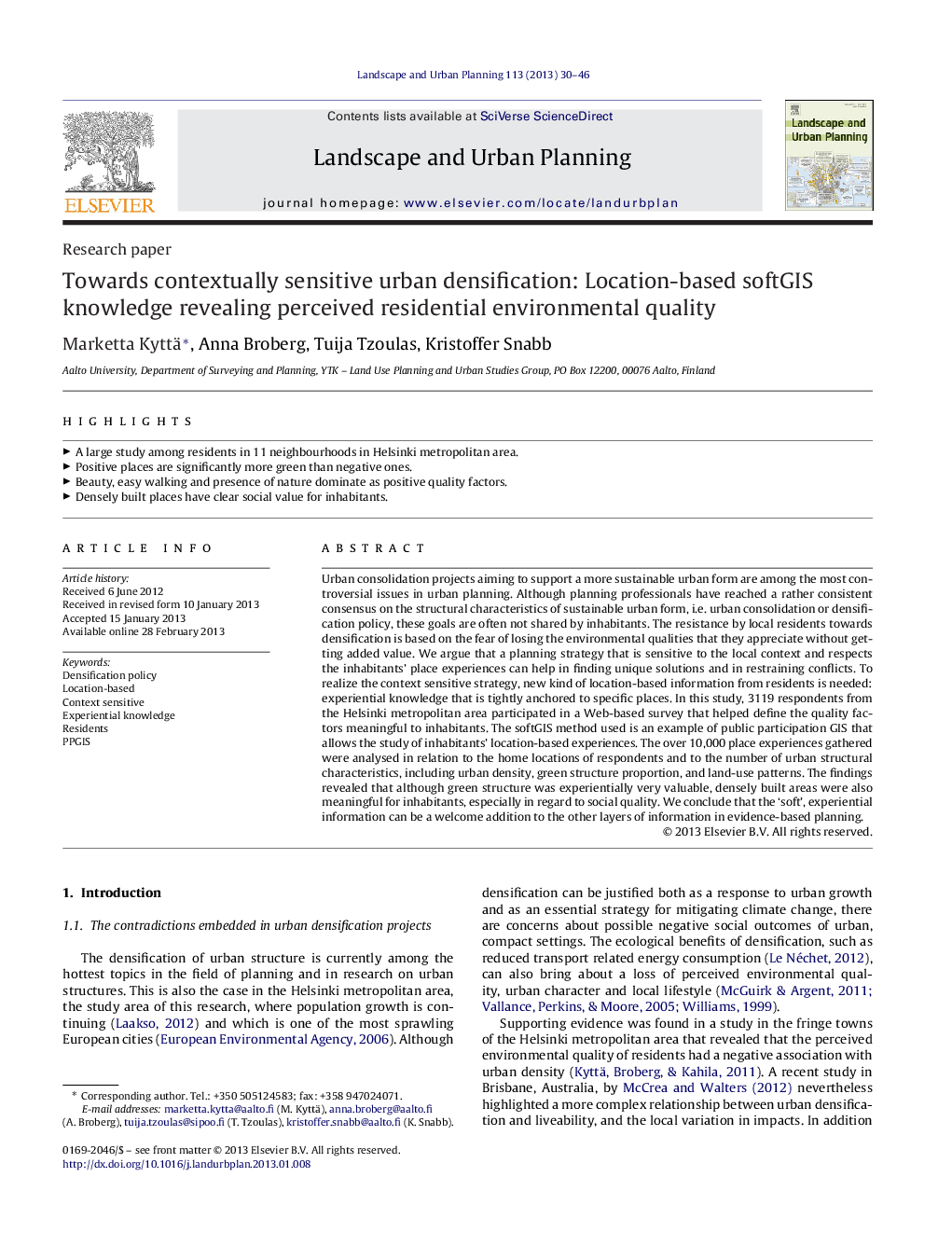| کد مقاله | کد نشریه | سال انتشار | مقاله انگلیسی | نسخه تمام متن |
|---|---|---|---|---|
| 1049414 | 1484645 | 2013 | 17 صفحه PDF | دانلود رایگان |

Urban consolidation projects aiming to support a more sustainable urban form are among the most controversial issues in urban planning. Although planning professionals have reached a rather consistent consensus on the structural characteristics of sustainable urban form, i.e. urban consolidation or densification policy, these goals are often not shared by inhabitants. The resistance by local residents towards densification is based on the fear of losing the environmental qualities that they appreciate without getting added value. We argue that a planning strategy that is sensitive to the local context and respects the inhabitants’ place experiences can help in finding unique solutions and in restraining conflicts. To realize the context sensitive strategy, new kind of location-based information from residents is needed: experiential knowledge that is tightly anchored to specific places. In this study, 3119 respondents from the Helsinki metropolitan area participated in a Web-based survey that helped define the quality factors meaningful to inhabitants. The softGIS method used is an example of public participation GIS that allows the study of inhabitants’ location-based experiences. The over 10,000 place experiences gathered were analysed in relation to the home locations of respondents and to the number of urban structural characteristics, including urban density, green structure proportion, and land-use patterns. The findings revealed that although green structure was experientially very valuable, densely built areas were also meaningful for inhabitants, especially in regard to social quality. We conclude that the ‘soft’, experiential information can be a welcome addition to the other layers of information in evidence-based planning.
► A large study among residents in 11 neighbourhoods in Helsinki metropolitan area.
► Positive places are significantly more green than negative ones.
► Beauty, easy walking and presence of nature dominate as positive quality factors.
► Densely built places have clear social value for inhabitants.
Journal: Landscape and Urban Planning - Volume 113, May 2013, Pages 30–46